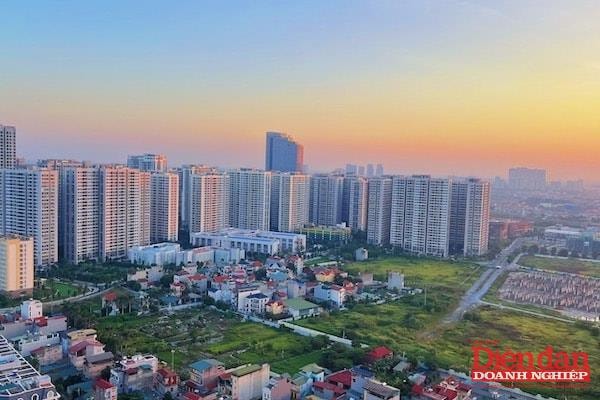Vietnamese real estate market continues its upward trend
After a period of depression, the Vietnam real estate (RE) market is bouncing back as market confidence recovers, and the number of property searches grows. Rather than relying primarily on the apartment market, cash flows are seeking other alternatives.

These are the insights shared by Mr. Nguyễn Quốc Anh, Deputy General Director of Batdongsan.com.vn, with our reportter regarding forecasts for the Vietnam real estate market in 2025.
- Looking back at 2024, the real estate market underwent significant changes in policies and investment flows. How do you assess the market's recovery process?
The real estate market goes through several key phases: downturn, exploration, consolidation, recovery, and stability. Over the past year, we can say the market has overcome its most challenging phase, marking a turning point and an exploratory period. The implementation of three key amended laws related to real estate (the 2023 Housing Law, the 2023 Real Estate Business Law, and the 2024 Land Law), effective from August 1, 2024, is generating positive movements in the market.
Not only homebuyers but also brokers, exchanges, and developers highly appreciate the legal reforms. The new regulations not only enhance transparency but also facilitate improvements in housing supply, particularly social housing.
The Vietnam Real Estate Market Overview 2024 report by Batdongsan.com.vn clearly reflects that prices of newly launched housing projects in major urban centers like Hanoi and Ho Chi Minh City continue to rise.
Specifically, in Hanoi, the average selling price of new projects currently ranges from 45 to 90 million VND per square meter, depending on location and associated amenities. Meanwhile, in Ho Chi Minh City, prices are even higher, averaging between 45 and 130 million VND per square meter.
Notably, despite the rising prices, the absorption rate of new projects remains strong. These projects have achieved an average absorption rate of 30-60%, with some even reaching impressive rates above 80%. This indicates that demand for housing in the two major cities remains robust, reflecting the sustained attractiveness of the real estate market.
In addition, the private housing and land plot segments have also shown positive signs. According to market data collected by Batdongsan.com.vn, interest levels and transaction volumes for these two segments in the first three quarters of 2024 have seen significant improvements compared to the previous sluggish period.
Beyond the housing segment, the rental market is also entering a growth phase due to the high-demand season and the pressure from rising selling prices. Over the first nine months of 2024, real estate prices consistently rose above the 50 million VND per square meter mark, pushing rental prices up as well.
- As you mentioned the different phases, how will the market evolve entering the “consolidation” phase?
The consolidation phase is a crucial transitional period following the exploration phase and before the market enters full recovery. This is the time when legal, financial, and market sentiment issues are gradually addressed, laying a solid foundation for sustainable growth.
During this phase, legal issues such as construction permits, land ownership rights, and zoning regulations will be thoroughly resolved. Projects previously stalled due to legal obstacles will be unblocked, helping to increase real estate supply.
Additionally, capital flows into the market will start to increase again as interest rates remain at reasonable levels and banks loosen credit conditions. Both individual and institutional investors will return to the market with more confidence in financial stability.
In the consolidation phase, real estate prices tend to rise moderately but not uniformly, with the increase mainly concentrated in segments that have achieved legal clarity and practical exploitation potential.
Central or near-central areas in major cities like Hanoi and Ho Chi Minh City will lead this price increase, while peripheral areas will take longer to recover.
- Could you provide more specific forecasts for the real estate market in the near future?
From Q4/2024 to early Q2/2025, the market will enter the consolidation phase. Investors will become more confident about the industry's growth prospects. At this stage, the apartment segment will cede the spotlight to private houses and townhouses.
Following this phase, the market is expected to enter the recovery phase from Q2/2025 to Q4/2025, during which investors will shift their focus from pricing and legal concerns to the potential for value appreciation. Profitable segments such as land plots and project villas will attract significant attention from investors.
Finally, from Q1/2026 to Q4/2026, the market is anticipated to enter a stable trajectory, with prices and liquidity improving across various property types. This could be considered the most optimistic scenario for the market after a prolonged period of stagnation.
Thank you for your insights!








